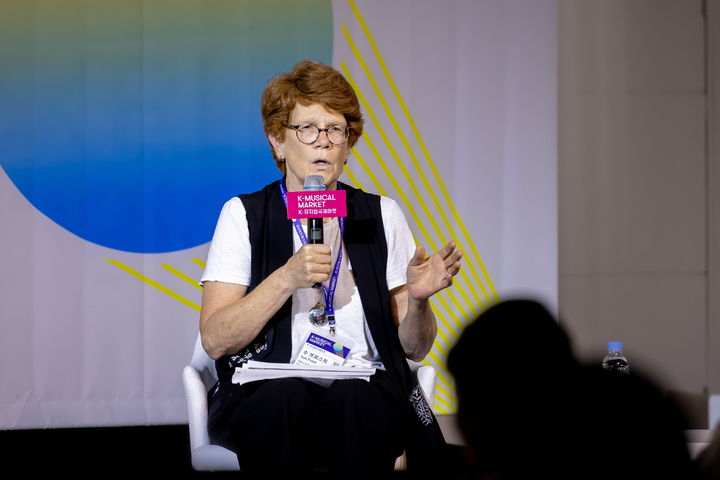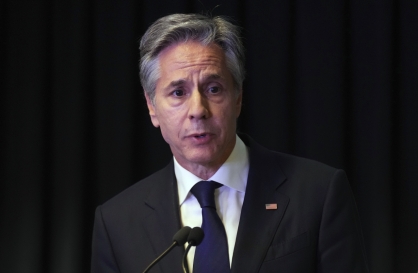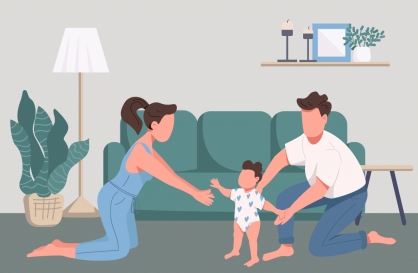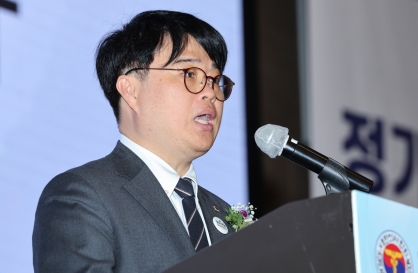K-Musical Market was launched in 2021 with the support of the Ministry of Culture, Sports and Tourism and the Korea Arts Management Service to promote Korean original musicals internationally.
The Korean government's hope is that Korean musicals might replicate the achievements of K-pop, movies and dramas. And that hope is not groundless. Musicals account for 75 percent of ticket revenue in the country's performing arts industry and the musical scene is burgeoning with countless big and small musical productions that are introduced not only in South Korea but, in recent years, also abroad.
Furthermore, the resilience of South Korea's musical industry during the COVID-19 pandemic boosted global interest in the local market, according to several overseas experts including Sue Frost, partner and producer at Junkyard Dog Productions, who participated in K-Musical Market.
In addition to Frost, music theater experts from Japan and China each introduced their unique markets and discussed the potential of Korean musicals outside the country.
 |
Sue Frost, Junk Yard Dog Productions' founding partner and producer, speaks at a discussion on June 28 held as part of K-Musical Market 2023 at Jeongdeong 1928 Art Center in Seoul. (Korea Arts Management Service) |
'Broadway needs to find ways to welcome new audiences'
After a few days of watching showcases of Korean musicals at the K-Musical Market, Sue Frost, Junk Yard Dog Productions' founding partner and producer, was impressed by the number of shows and the level of performers.
“I think there's a lot of potential. There are some interesting voices and some very unique ideas for stories. I'm also really impressed by the level of performance talent (in Korea),” she said.
Junk Yard Dog Productions is known for award-winning shows like “Memphis” and “Come From Awa.
Part of Frost's interest in Korea is its relative resilience to the impact of the COVID-19 pandemic, which allows it to take more risks.
“When you continued to perform 'Phantom of the Opera' during the COVID-19 lockdown, Broadway paid a lot of attention to what measures were put into place and how you continued to keep audience coming and keep people on the stage,” she explained.
“Broadway producers think Korea is a very lucrative market for musicals. I don’t think they are as aware of new musicals being developed but I think that’s part of what K-Musical Market is doing -- building that awareness,” she added.
Broadway, the pinnacle of the musical theater industry, is still in the process of recovering. It has been slow to lure back avid musical buffs who are prepared to take a chance on a new show.
Hence, Broadway has been treading a relatively safe path. New musicals are mostly jukebox, catalog, well-known brands like “Back To The Future” and Neil Diamond.
Those that do take a risk face an even higher chance of failure than usual.
The musical "K-pop” might be a new type of musical on Broadway but it decided to close only after 17 shows. It represents a challenge about reaching the right audience before running out of money, Frost said.
That is also a challenge for Frost, whose focus is on putting on new musicals. Before founding Junkyard, she produced more than 50 new musicals as an associate producer at Goodspeed Musicals for 20 years.
“Some of the most successful musicals that I know are crazy ideas,” she said.
As Broadway recovers to its pre-pandemic level of activity, Frost hopes for the return of an avid audience, risk-taking audience and as well as new audiences.
For those things to happen, Broadway needs to work more on who are writing the stories in addition to who are put on stage, two areas that are achieving a lot of diversity than before, she added.
"I don't think Netflix or any of these streaming services are ever going to replace live theater. But we have to work hard to not be seen as elitist, expensive and find ways to welcome new audiences," she said.




![[Weekender] How DDP emerged as an icon of Seoul](http://res.heraldm.com/phpwas/restmb_idxmake.php?idx=644&simg=/content/image/2024/04/25/20240425050915_0.jpg)


